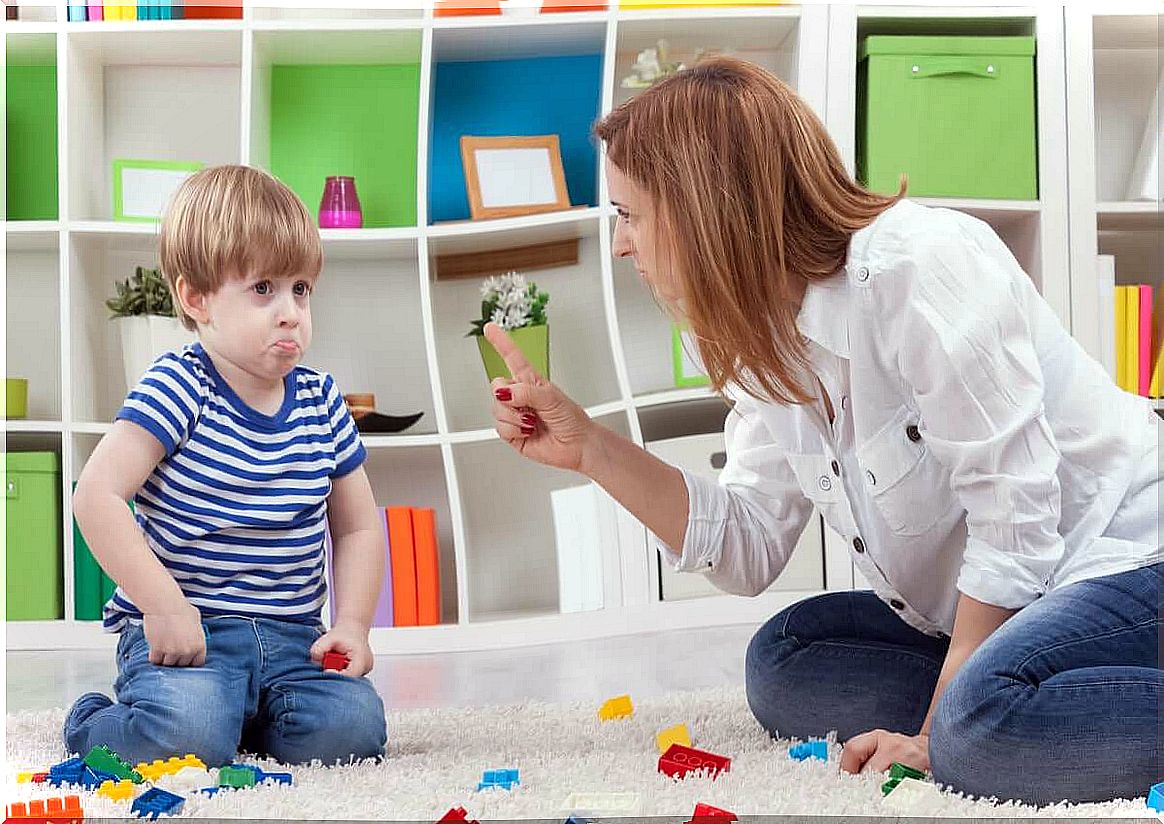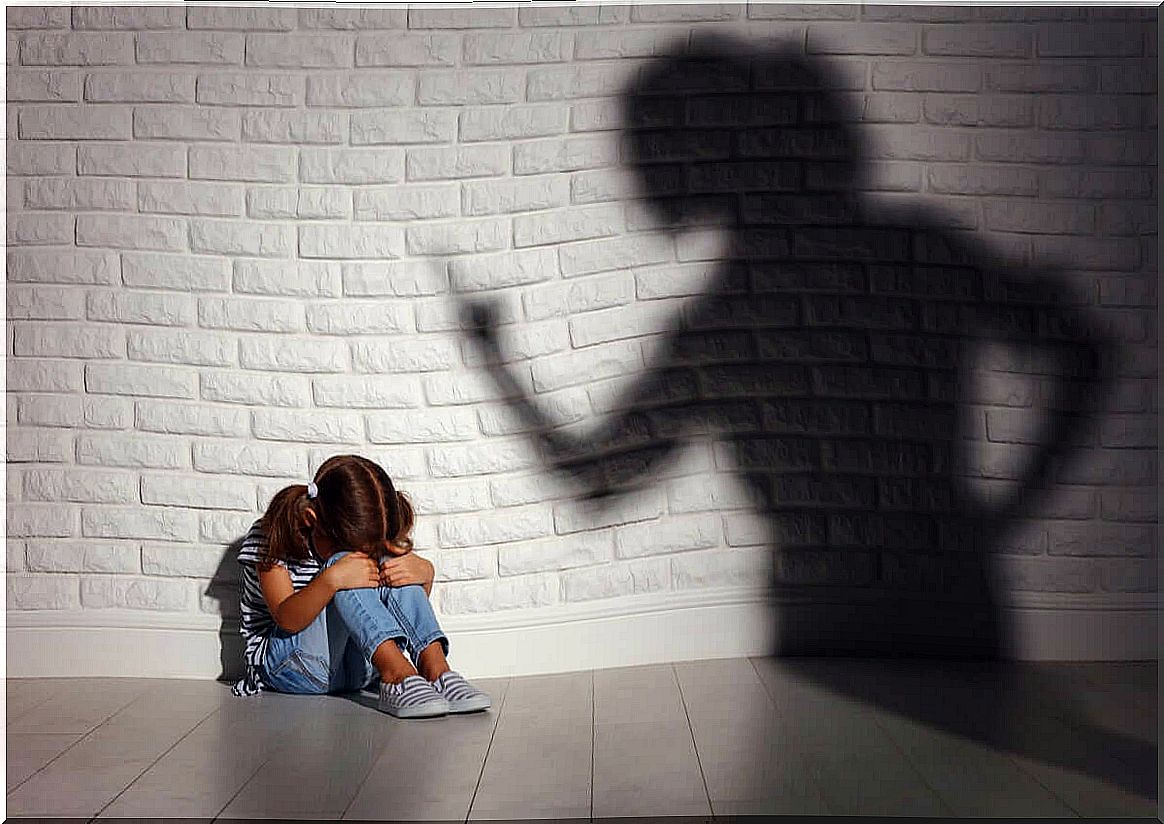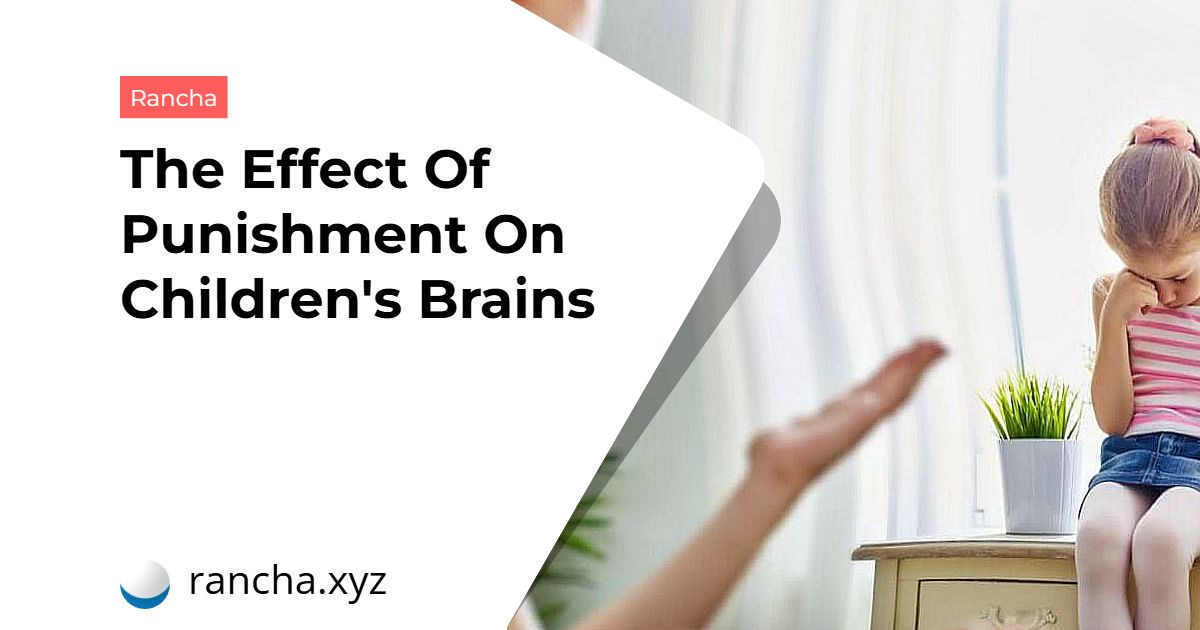The effect of punishment is a hotly debated topic, especially in recent years. It forms the basis of the most traditional parenting system and is not only used in the family, but also at school and in various areas of society.
What makes the matter confusing at first is the effectiveness of this method. The effect of punishment on children is immediate: it convinces them to do or stop doing something. The point is, this is also temporary. If there is a deep motivation for some behavior, it will resurface despite punishment.
The truth is, bullying offers instant results and that leaves many parents at peace, at least for the moment. However, it should also be taken into account that this method is ethically questionable and even illegal in many cases, but the worst thing is that, in the long run, it does not work.

The effect of punishment on the brain
According to Dr. Jorge Cuartas , physical punishment causes an atypical development in children’s brains. The high levels of cortisol this causes, at a stage when the brain structure is still forming, causes changes in the prefrontal cortex.
Likewise, a study published in the journal Journal off Agression, Maltreatment and Trauma indicates that severe punishment is associated with a reduction in children’s cognitive abilities. This appears to have a greater impact on children aged 5-9 years.
This applies not only to physical punishment, but also to high-impact verbal and psychological attacks, which have a similar effect to hitting.
It is noteworthy that there is not a single study that demonstrates that this type of punishment has any advantage. On the other hand, it has been shown that, in addition to the possible harm, severe punishment is not effective.
The answer to punishment
The effect of punishment on the child is, in principle, the activation of the survival instinct. Therefore, there are three alternatives: attack, escape or paralysis. It works automatically, without any reflection or decision on the matter. He just takes action.
Physiologically, there is an increased secretion of cortisol and adrenaline, which limits the ability to think, while increasing the intensity of some emotions, such as anger or fear. Under these conditions, functions such as critical thinking, reasoning, etc. are diminished. So there can be no learning.
Once the punishment is received, other intense and confusing emotions often arise as well . Sometimes there is guilt, shame or resentment. Likewise, the child thinks he is bad or that there is something wrong with him. In the meantime, she doesn’t fully understand what she did wrong, why she is wrong, and what the reasons are for avoiding it in the future.

The less severe punishments
The effect of punishment is not only negative when the punishment is severe or violent, but also in other cases. Psychologist Rafael Guerrero said the very nature of punishment is questionable. Apparently, what is sought is that the child learns or improves some behavior. However, it is about doing damage to achieve that goal.
Sometimes the only recourse to do this damage is to hit, scream or humiliate. At other times, pain occurs in the child in other ways. For example, some parents send their children “into the corner”, supposedly to “think” about the “wrong thing” they’ve done. Most likely they won’t do this reflection (which not even adults do), they’ll just think about getting out of this situation as soon as possible.
What remains after that is not a greater awareness of the conduct that prompted the punishment. On the other hand, the relationship of power, impotence and the impact of the punishing figure remain fixed in memory. If the child stops doing what caused the punishment, it will be because of the pressure of circumstances, not because he “learned to behave”.
Perhaps one of the most valuable lessons an adult can teach a child is that error is a source of learning. It is easier and faster to “train” a child than it is to nurture their conscience. However, as we have seen, the effect of punishment is very temporary, unlike a well-founded conscience, which lasts forever.
 rancha.xyz Be free to choose their own route to self-knowledge, health and balance of body and soul.
rancha.xyz Be free to choose their own route to self-knowledge, health and balance of body and soul.




